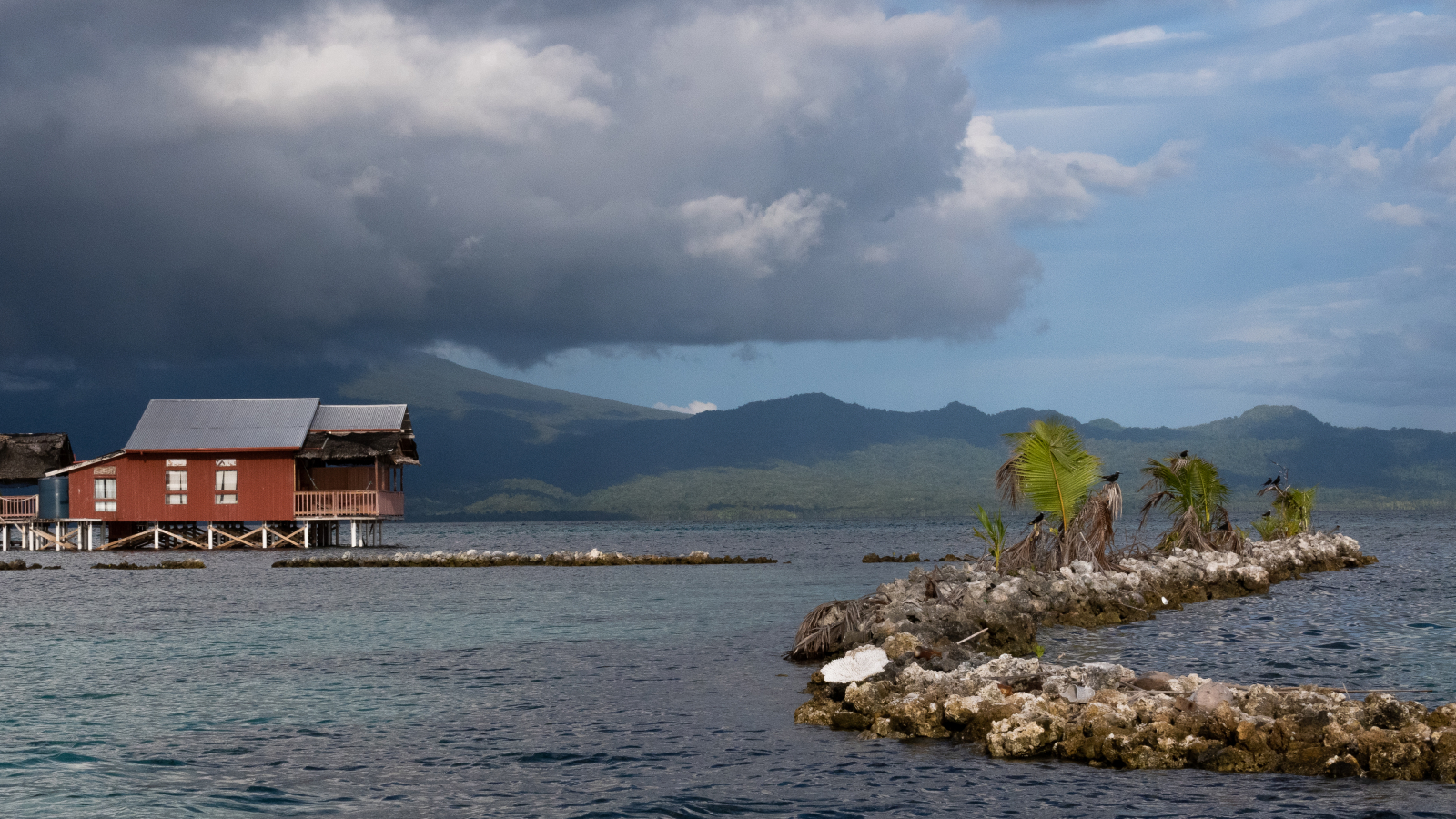
Coral Stone Wall in the Western Province, Solomon Islands. Photo Credit: Ancuta Hansen
SHARE
Solomon Islands is at the forefront of unprecedented global environmental challenges. Population growth, pressure on natural resources, and governance challenges accelerate the dramatic effects of climate change, affecting local communities in unprecedented ways. Findings from national public opinion research conducted by NDI in 2021 show that Solomon Islanders are increasingly concerned about these aspects and demand more inclusive and effective governance.
To help address these issues, with support from USAID, in 2021, NDI facilitated the establishment of a network of young men and women interested in strengthening independent monitoring of public policy implementation and advocating on behalf of their communities for improved natural resources management, environment protection, and climate change resilience. The program has leveraged the activists’ sense of agency in spurring change and helped them develop strong working relationships with government officials, local organizations, and traditional leaders to foster a more transparent, effective, and inclusive government.
Twenty-five emerging youth leaders from Guadalcanal, Honiara, Isabel, Malaita, Temotu and the Western Province were selected through a competitive process to attend a two-phased program. The first phase included a three-month course on Inclusive Monitoring and Advocacy for Transparency and Accountability, delivered by a team of local and international facilitators.
Upon successful completion of the course, NDI invited alumni to design locally-led initiatives. Working individually or in teams, the activists, known as “Youth Advocates for Integrity,” consulted with experts and affected individuals to better understand community issues such as improper sanitation, logging, waste management, the accessibility of natural disaster protection services for people with disabilities, and the over-harvesting of marine resources.
Using data collection and analysis skills learned through the program, the participants conducted qualitative assessments using community surveys, key informant interviews, group discussions, community dialogues, document review, and direct observation. For example, Obrent Oti Maekera and Anisha Kadels Micheal’s qualitative assessment focused on the overharvesting of fish and coral. They hope their findings will help identify gaps in current practices and government processes and also result in greater efforts by the national government to publish policies and regulations around harvesting of fish and coral. This and the other research projects were conducted between May to October 2022.
The studies show that there is a growing acknowledgment of the link between the state of the environment and people’s health and livelihoods, but more needs to be done to educate the public on sustainable fishing, logging, and waste management practices. The legal framework and policies need to be reviewed to better understand potential implementation gaps.
While initial findings show that the overall legal framework provides a good starting point, its provisions could be further developed to adequately respond to the complex issues posed by natural resources management, environmental issues, and climate change. The emergency shelters and other natural disaster infrastructure must be accessible to everyone, including persons with disabilities. Furthermore, adequate resourcing and staffing are needed for effective monitoring and law enforcement.
The participants believe that collaboration between national and provincial governments, local communities, and development partners is key to gaining an understanding of every stakeholder group’s views and priorities and consequently building trust in managing the country’s resources. As Anisha Kadles Michael, a Youth Integrity Advocate from Western Province said, “It is everybody's responsibility to be mindful and take action. It’s the only way to save our marine life and resources and, ultimately, our islands.” Independent monitoring by a strong civil society would amplify the demand to make available information that is in the public interest and would foster a culture of government integrity, transparency, and accountability.
At the conclusion of the program, NDI brought together alumni and stakeholders to share key takeaways, lessons learned, and recommendations at a capstone event organized in Honiara. This event further elevated participants' profiles as primary resources on ethical natural resources management and environmental governance.
“USAID is proud to support young people to become more involved in decision making in their communities and stewards of their natural resources. They are the future, and our decisions today will affect children and young people for generations to come,” said Clay Epperson, USAID’s Acting Senior Development Advisor for Papua New Guinea, Solomon Islands, and Vanuatu.
The youth activists call on the government, communities, civic activists, and development partners to take urgent action to improve environmental, resource management, and climate change governance in Solomon Islands. Doing so would provide a critical pathway to advancing the country’s aspiration for good governance, sustainable development, and lasting peace. More information about monitoring projects implemented by the activists can be found here.
Author: Ancuta Hansen, Senior Director for Pacific Islands at NDI
NDI's engagement in Solomon Islands is implemented with support from the United States Agency for International Development (USAID) through the Consortium for Elections and Political Process Strengthening (CEPPS).
###
NDI is a non-profit, non-partisan, non-governmental organization that works in partnership around the world to strengthen and safeguard democratic institutions, processes, norms, and values to secure a better quality of life for all. NDI envisions a world where democracy and freedom prevail, with dignity for all.


